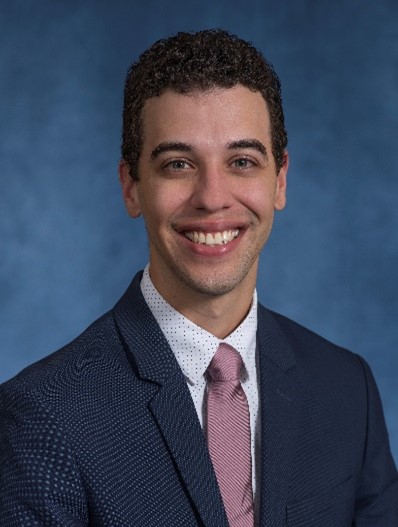
Marcus Henderson is a doctoral fellow in the 2021-2022 class of the Minority Fellowship Program (MFP) with the American Nurses Association (ANA). He received his B.S.N. in nursing and his M.S.N. in health leadership from the University of Pennsylvania (UPenn) School of Nursing, and he holds a certificate in Health Care Innovation from the Perelman School of Medicine at UPenn. Marcus is currently pursuing a Ph.D. at the Johns Hopkins University School of Nursing in Baltimore, MD. Marcus has professional experience working in community-based, acute psychiatric, and educational settings. Most recently, he was a lecturer in the Department of Family and Community Health at the UPenn School of Nursing and charge nurse for Child and Adolescent Services at Fairmount Behavioral Health System in Philadelphia, PA. In addition to his ANA-MFP fellowship, Marcus has been appointed to serve as a member of the National Commission to Address Racism in Nursing. Broadly, his research interests include adolescent mental health, family health, mental health disparities, social determinants of health and mental health services research with specific interest in improving care, eliminating disparities, and optimizing outcomes for adolescents from marginalized backgrounds.
Marcus was initially drawn to the MFP because the program aligns with his career goals as a clinician and researcher. He shared, “My interest is in psychiatric-mental health both as a clinician and researcher and the vital importance of improving mental health outcomes and advancing mental health equity for marginalized youth.” Currently, Marcus is working on a literature review focused on family/parental factors impacting adolescent suicidality in support of his dissertation proposal. He is also collaborating on a research project focused on psychoeducation for suicidality with faculty from the John’s Hopkins Schools of Medicine and Public Health.
When reflecting on how the MFP has enriched his academic and professional career, Marcus shared that it has provided him opportunities to grow personally, professionally, and academically. He stated, “The MFP-ANA educational offerings have been such a meaningful addition to supporting my personal and professional growth in the doctoral program. The sessions have challenged me to further embrace the power of critical self-reflection to better understand how I view myself and the world around me, thus enhancing my approach to research. My MFP mentor has been an amazing support person and has used her knowledge and expertise to assist me in navigating the rigorous academic environment.” Participating in the MFP has also helped Marcus build and nurture his professional network. He remarked, “I have been connecting with nurses in advanced clinical practice and research who all share a common goal of advancing mental health equity in this country.”
After completing his Ph.D., Marcus’ career goals include training the next generation of nurses and researchers. He explained, “My career goal is to pursue a career in academia as a professor and mental health researcher with an aim to transform psychiatric-mental health nursing education and build a program of research to improve mental health care and optimize outcomes for children and families.” Marcus plans to apply the knowledge and skills acquired from the MFP as an educator, researcher, and advocate for mental health. He stated, “In the future I plan to pursue an academic appointment to develop a program of research and inspire the next generation of nurses. The knowledge I am acquiring now will inform my approach to teaching and research grounded in a social justice and health equity lens. Through my research I also hope to use the skills that I am developing in research dissemination, translation, and advocacy to inform mental health policy on a broader scale thus improving population mental health outcomes for children and families.”
When asked what advice he had for anyone thinking about applying to the MFP, Marcus remarked, “The MFP is an extremely beneficial program that is built on a long history of success in supporting individuals of diverse backgrounds through an interdisciplinary scholarly community focused solely on the north star of improving mental health.” He went on to say, “The ANA mentorship is such a great model of support, shared learning, and growth. It is an exemplar program that many fellowships and other training programs could benefit from.”